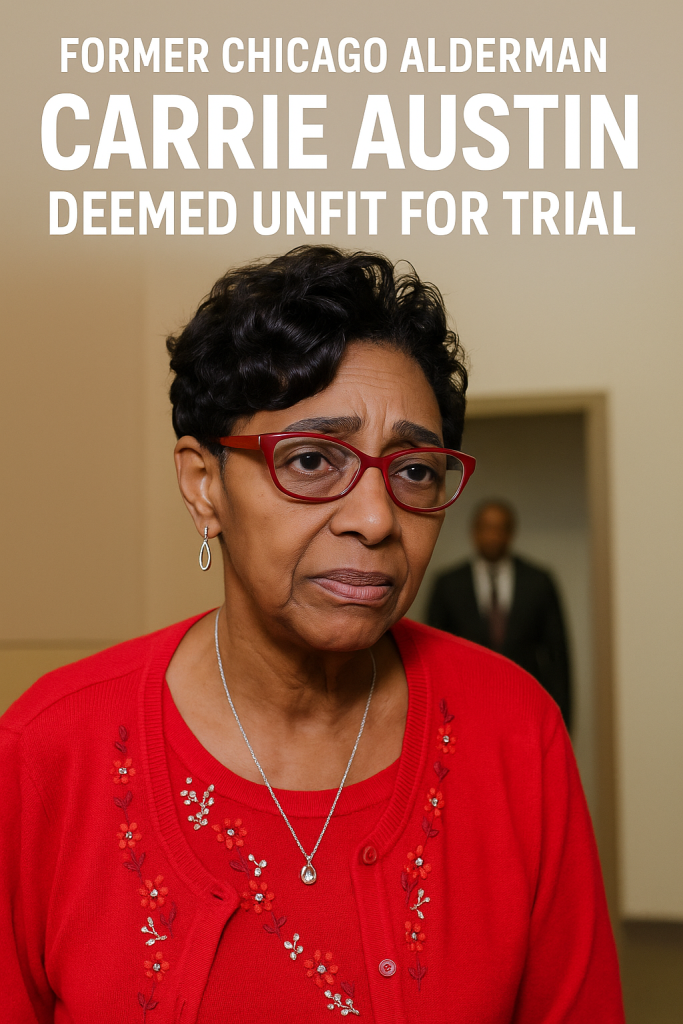Former Chicago alderman Carrie Austin, who was indicted in 2021 on allegations related to receiving home improvements from contractors seeking city assistance, has been declared unfit to stand trial, marking a significant development in a case that has drawn considerable attention over allegations of political corruption.
The indictment, filed nearly three years ago, accused Austin of accepting extensive home renovations from contractors who were simultaneously pursuing city contracts and permits in multiple Chicago neighborhoods. Prosecutors argued these home improvements amounted to improper gifts intended to influence the alderman’s official decisions and city-related endorsements.
Legal proceedings stalled as questions about Austin’s health emerged. Recently, her defense team requested a mental fitness evaluation, citing concerns about her ability to understand the charges and participate in her defense. After thorough medical assessments, the court ruled that Austin is currently unable to comprehend the nature of the trial or assist in her own defense, rendering her unfit for trial.
The ruling delays the prosecution’s efforts and raises questions about how long the case may be postponed. Under Illinois law, a defendant found unfit to stand trial can be re-evaluated periodically, and the trial may be resumed if their condition improves. For now, the case remains in a legal holding pattern with no clear path forward.
Carrie Austin served as the alderman for Chicago’s 34th Ward for over two decades, making her a prominent figure in the city’s political landscape. Her tenure included leadership roles and influence over zoning decisions and local development projects, which intensified scrutiny during the investigation. The indictment notably underscored allegations that Austin leveraged her position to benefit personal interests, a charge she has denied through her legal representatives.
The bribery case is part of a broader crackdown on corruption within Chicago’s municipal government, which has seen various officials charged with misconduct and fraudulent activity in recent years. Such cases have fueled public demand for greater transparency and reform in how city resources and contracts are managed.
Legal experts note that the decision to declare Austin unfit for trial reflects both the challenges of prosecuting aging political figures and the complexities of ensuring justice while respecting defendants’ rights and health conditions.
As proceedings are paused, community members and political observers are closely watching for any updates, knowing this case symbolizes ongoing struggles within Chicago’s political system to address allegations of unethical conduct.
While Austin’s legal team has yet to announce next steps, the ruling highlights the intersection of political corruption, health issues, and judicial process, emphasizing that justice can be a prolonged journey—especially in high-stakes public corruption cases.
For now, the status of the indictment remains in limbo, leaving Chicago residents and city officials awaiting clarity on the potential resumption of the trial and the broader implications for accountability in local government.



